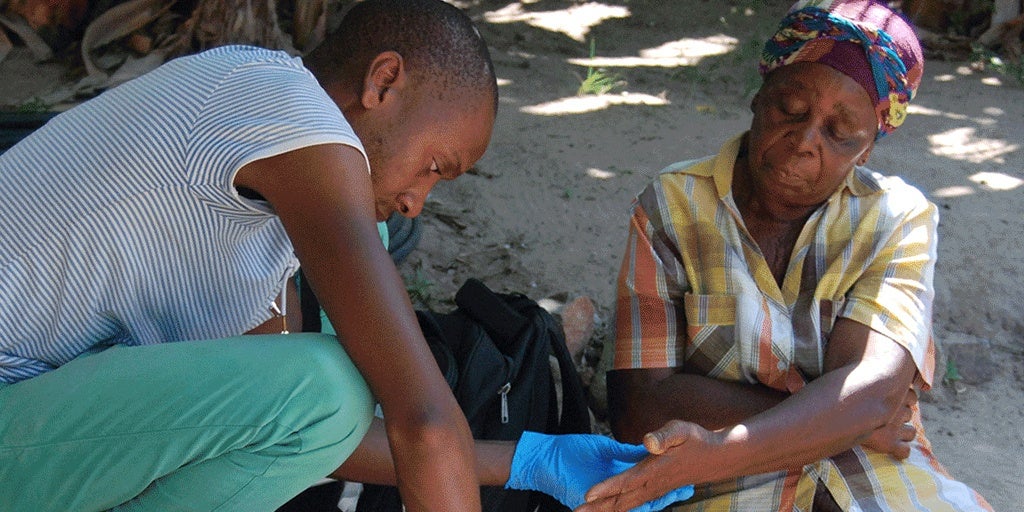Researchers in the The Health and Aging in Africa: a longitudinal study of an INDEPTH Community in South Africa (HAALSI) project explored whether those people living with HIV receiving antiretroviral therapy (ART) might have better chronic disease (e.g. hypertension, diabetes) control and numbers resulting from the “cascade” of care. The results are published in JIAS.
In South Africa, when HIV testing is not always possible, is self-reported status a viable, reliable alternative?
A team of researchers affiliated with the Harvard Pop Center and the Health and Aging in Africa: A Longitudinal Study of an INDEPTH Community in South Africa (HAALSI) has found that the self-reported HIV status of older adults was accurate enough that it could be considered as a routine first step to establish HIV status when testing is not possible. The study was published in JIAS (Journal of the International Aids…
Global health researchers call for development of local research capacity within LMICs
A team of global health experts, including Harvard Pop Center faculty members Stephen Tollman and Kathleen Kahn, have authored a Comment in The Lancet Global Health that makes a case for why strengthening local research capacities within low- and middle-income countries (LMICs) is needed to most effectively pinpoint issues, and develop and govern system-wide solutions. The team offers a detailed list of action steps that could be taken to ensure that such a…
Hypertension well managed for those older South Africans whose health was monitored by long-term surveillance program
A study just out in the Journal of Hypertension co-authored by Harvard Pop Center faculty members Stephen Tollman, Till Bärnighausen, Joshua Salomon, and Bell Fellow Xavier Gomez-Olive points to the potential effectiveness of a local, long-term health surveillance program for managing hypertension, the leading risk factor for cardiovascular disease. The results of the study shed light on which members of the population should be receiving even more attention.
Receiving antiretroviral therapy for HIV may offer spillover health benefits for at-risk population in South Africa
A team of HAALSI (a research project studying health of aging population in South Africa) researchers affiliated with the Harvard Pop Center has found that HIV-positive adults in South Africa who receive antiretroviral therapy (ART) for HIV have greater access to preventative care for non-communicable diseases (NCDs) such as diabetes and hypertension. Their findings are published in the journal Open Forum Infectious Diseases.
HIV prevention initiatives needed targeting those 40 years & older in rural South Africa
A study published in JAIDS (Journal of Acquired Immune Deficiency Syndromes) by a team of HAALSI (Health and Aging in Africa: A Longitudinal Study of an INDEPTH Community in South Africa) researchers examines whether older adults in rural South Africa have unmet needs for HIV prevention.
In South Africa, child support grants not found to incentivize having more children
Harvard Bell Fellow Molly Rosenberg, PhD, is lead author on a paper published in PLOS One that examines how receiving a social protection grant may influence fertility. Exposure to a child support grant was not found to incentivize pregnancy, however, it could result in longer spacing between pregnancies. Harvard Pop Center faculty members Till Bärnighausen, Kathleen Kahn, and Stephen Tollman are also authors on the paper.
